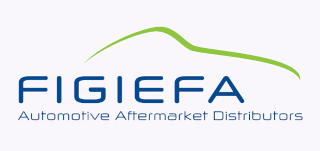Automotive Industrial Action Plan – Implementation must unleash the full potential of the Automotive Aftermarket Value Chain

FIGIEFA welcomes the general approach outlined in the Commission’s Automotive Industrial Action Plan released on the 5th of March 2025. We support all proposals which boost the competitiveness, supply chain resilience and clean mobility of the entire automotive industry sector.
FIGIEFA welcomes the Plan as a first step and calls for follow-up actions taking a holistic approach to the whole vehicle lifecycle, from development to end of life. Our Aftermarket value chain is key for building consumer trust in the twin transitions towards electrification and in connected & automated vehicles. The successful implementation of the Action Plan must address and be complemented with measures to support the essential role of the Aftermarket supply chain in sustaining the competitiveness of the automotive industry as a whole.
* * * *
FIGIEFA welcomes the anticipated review of the CO2 regulations in 2025 and urges that this review adopts a technology-neutral approach.
FIGIEFA welcomes the inclusion into the Plan of the long-awaited sector specific legislation for access to in-vehicle data, functions and resources. The Data Act, while a good initiative, it not sufficient in itself to address the needs of independent service providers seeking to develop digital services. We regret not seeing a concrete commitment to a legislative proposal. Guidance is welcomed but insufficient and indeed waiting until the assessment of the Data Act occurs is too late. We therefore urge the Commission to move forward more quickly.
FIGIEFA welcomes the fitness check of the Motor Vehicle Block Exemption Regulation. This legislative instrument is of key importance for fair competition on the automotive sector. It needs to be maintained and updated to address persisting impediments more effectively and to cope with new challenges in a digital environment.
We also welcome the announcement of the European Connected and Autonomous Vehicle Alliance to which FIGIEFA and its Members would be keen to contribute, for example on the standardisation of sandboxed environments for the integration of third-party services together with the appropriate software interfaces securing access to the required vehicle data, functions & resources. We also appreciate the idea, as suggested by FIGIEFA during the Thematic Dialogues, of integrating scalability and upgradability requirements in the computing platform development. This will be essential for vehicle maintenance over its 20-year lifespan and is an area where the aftermarket supply chain can plan an essential role as this reaches market deployment.
The Action Plan intents to boost the circularity of the automotive supply chain to decrease raw-material dependency and to increase strategic autonomy and resilience. The Plan fails however to mobilise existing practices. FIGIEFA calls upon the Commission to reinforce remanufacturing in the EU. This will support our local industry, local infrastructure and local employment. With software-defined vehicles, new powertrains and EVs, there is an increasing number of high value components which qualify for remanufacturing. This potential remains unexplored in the Action Plan and should be supported through regulatory and financial measures as well.
We welcome the recognition of the importance of battery repairability in securing consumer confidence in battery electric vehicles. Assess to battery repair & maintenance information is essential, and any regulatory measures addressing this will be very welcome. Access to battery health information via the battery passport is also welcome, but measures to address rights of access to battery-generated data to enable an independent assessment of the battery health and -diagnosis in case of defects is also essential and needs to be addressed too.
We would support the idea of standardisation interventions on battery design within the “Battery Booster” package and would suggest that this must include the repairability dimension, which would also contribute the circularity aspects of battery design. EU public funds should be linked to reparability requirements (e.g. avoidance of gigacasting). Moreover, the EU should favour repairability and remanufacturing of EV batteries over recycling, which extends battery life and its original value, thereby reducing raw material dependency.
The Action Plan announces the evaluation of the Type-Approval legislation in 2026 with a particular focus on ‘simplification’. While we fully support simplification principles in order to avoid administrative and costly burdens to EU businesses, any potential revision of this legislation should be carried out carefully and shall reflect in particular changes to technical progress to enable e.g. (cyber-)secure access to the vehicle, software maintenance, parts activation, and complete repair and maintenance information. Simpler and more effective enforcement mechanisms are also required.
We support the attention given to the skills dimension, but it shall be done throughout the entire automotive supply chain. Equipping the current and future workforce with the skills required to address the impact of automation, digitalisation and electromobility is essential, as these trends also change skills profile requirements of staff in Aftermarket services sector.
* * * *
FIGIEFA remains committed to actively contribute to the implementation of the Automotive Industrial Action Plan and collaborate with the Commission and co-legislators to deliver practical, forward-looking solutions to the challenges ahead.
A strong, future-proof Automotive Industrial Action Plan can only be built through inclusive collaboration where all market players and consumers shape the path forward together. A thriving European automotive industry fully depends upon this.
